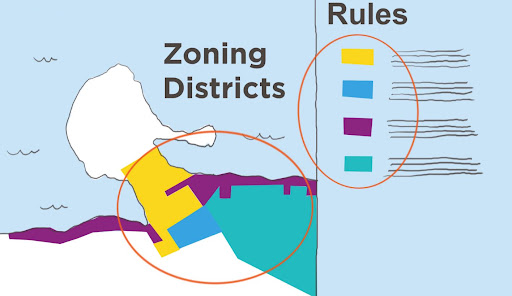
The impact of zoning laws on property development
Zoning laws are a crucial part of the real estate industry, as they dictate what can and cannot be built in specific areas. These laws help maintain order and prevent conflicts between different land uses. They also help promote the safety and welfare of communities. Zoning laws, however, have a significant impact on property development. This article will explore the impact of zoning laws on property development.
What are zoning laws?
Zoning laws are regulations that control the use of land and the types of buildings that can be constructed in different areas. Zoning laws typically divide an area into different zones, each with its own permitted land use and building regulations. For example, a residential zone may prohibit commercial use and restrict the height and size of buildings, while an industrial zone may allow for factories and warehouses.
Impact of zoning laws on property development
1. Land use restrictions
Zoning laws restrict the use of land to certain types of development, which can limit the potential for certain types of properties. For example, a residential zoning law would prohibit a developer from building a commercial property on the land. This can affect the value of the property, as it may not be suitable for the intended use.
2. Building regulations
Zoning laws also regulate the types of buildings that can be constructed in different zones. These regulations may include restrictions on building height, size, setbacks, and parking requirements. Developers need to adhere to these regulations when planning and constructing properties, which can add additional costs and complexity to the development process.
3. Property values
Zoning laws can significantly impact property values. For example, a zoning law that restricts the height of buildings in a particular area may prevent developers from building high-rise buildings. This could limit the amount of available space for new developments and increase the demand for existing buildings, leading to an increase in property values.
4. Economic impact
Zoning laws can have a significant impact on the local economy. For example, a zoning law that prohibits commercial development in an area can limit job growth and economic development. Conversely, a zoning law that encourages commercial development in an area can create jobs and boost the local economy.
5. Environmental impact
Zoning laws can also have an impact on the environment. For example, a zoning law that restricts development in wetland areas can help protect the natural habitat and prevent flooding. Similarly, a zoning law that encourages the construction of green buildings can help reduce energy consumption and promote sustainability.
Conclusion
Zoning laws play a critical role in the real estate industry, as they regulate land use and building regulations in different areas. Zoning laws can significantly impact property development, including land use restrictions, building regulations, property values, economic impact, and environmental impact. Developers and property owners need to understand the impact of zoning laws on property development to make informed decisions and ensure compliance with local regulations.











